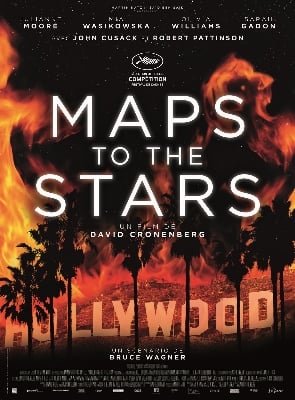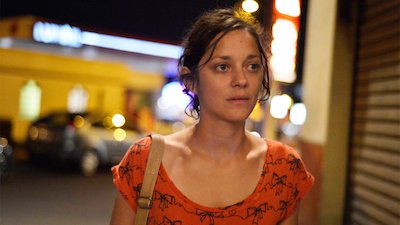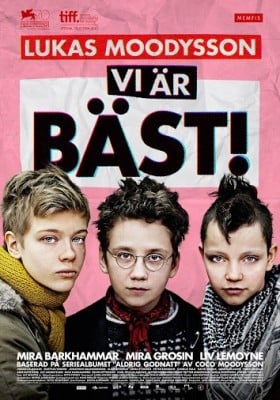Review: Simeon Halligan’s ‘White Settlers’
November 11, 2014
Director: Simeon Halligan
Cert. 15
Simeon Halligan’s White Settlers has been unofficially dubbed ‘the Scottish Independence horror film’, and at a brief glance it isn’t hard to see why. The story follows Ed and Sarah (Lee Williams and Pollyanna McIntosh), a yuppie English couple who to dodge high house prices buy a new house on a remote part of the Scottish border. However, they’re not there long before they start being terrorised by a gang of bloodthirsty pig-masked locals. This set-up, while in no way original, does have the making of a semi-interesting home invasion thriller, especially given the events of last September.
Unsurprisingly though, the plot quickly falls victim to complacency. There is nothing in White Settlers that horror aficionados will not have seen before – from the grisly violence to the set-up itself, it’s mostly instantly recognisable stuff. A couple buys a new house somewhere remote and, shockingly, with no phone signal. They soon find themselves hunted through the woods by axe-wielding maniacs. Their new home is even built on the site of an ancient battleground. At no point does Halligan subvert our expectations or provide anything that can really be described as ‘new’; instead, we are presented with a rehashing of old and worn out horror tropes that haven’t been exciting since the 1980’s. Compared with a film like Joss Whedon’s The Cabin in the Woods, which gleefully sent up years-old horror movie clichés while still managing to be reasonably scary, the shortcomings of White Settlers really start to show through.
Another disappointing area of the film is the way it handles its villains. Horror films have created some of the most memorable characters in cinematic history; Hannibal Lecter, Freddy Krueger, Michael Myers – all of these make for interesting and compelling antagonists. There can be many reasons why we find a villain appealing; they can have well-developed and understandable motivations, a new method of dispatching their victims, or just a really cool appearance. The villains of White Settlers, however, have no such depth to them. Sure, the masks they wear are creepy and make for some faintly impressive visuals, but it’s not like we haven’t seen this sort of thing in home-invasion thrillers before (Adam Wingard’s far superior You’re Next springs to mind).
In the long run though, this almost doesn’t matter, because the lack of characterisation for both the protagonists combined with the very clunky dialogue that they’re given means that we still root for the locals to finally get them.
All this would be excusable if Halligan was able to effectively capitalise on the film’s political premise. Unfortunately, he falls far short of the mark. For a film that was described as the Scottish referendum horror, White Settlers either lacks the courage or the skill to really engage with matters that were relevant to the debate. There’s no discussion of any of the economic or social issues that surrounded last month’s massive decision. It’s hard to avoid the feeling that the only reason the film was made was to capitalise on this sensationalism, because if it had been released in any other year, there wouldn’t have been enough interest garnered to paper over the cracks.
That’s not to say it’s all bad though. Williams and McIntosh both give good performances, with McIntosh in particular coming across like she may be one to watch in the future. What’s more, in spite of its flaws White Settlers does actually succeed in being pretty creepy. Say what you will, there’s still something menacing about the film’s premise, and Halligan often does manage to film his shots in a manner that makes the most of their scariness.
Ultimately however, the biggest problem with this film is what it could have been. If the time had been taken to properly flesh out the characters, establish motivations and most importantly, think of a smarter way to explain the political messages, then White Settlers really could have been quite good. Unfortunately, however, it’s likely to be quickly forgotten.
Adam Button
Filed under: Film, TV & Tech
Tagged with: film reviews



Comments